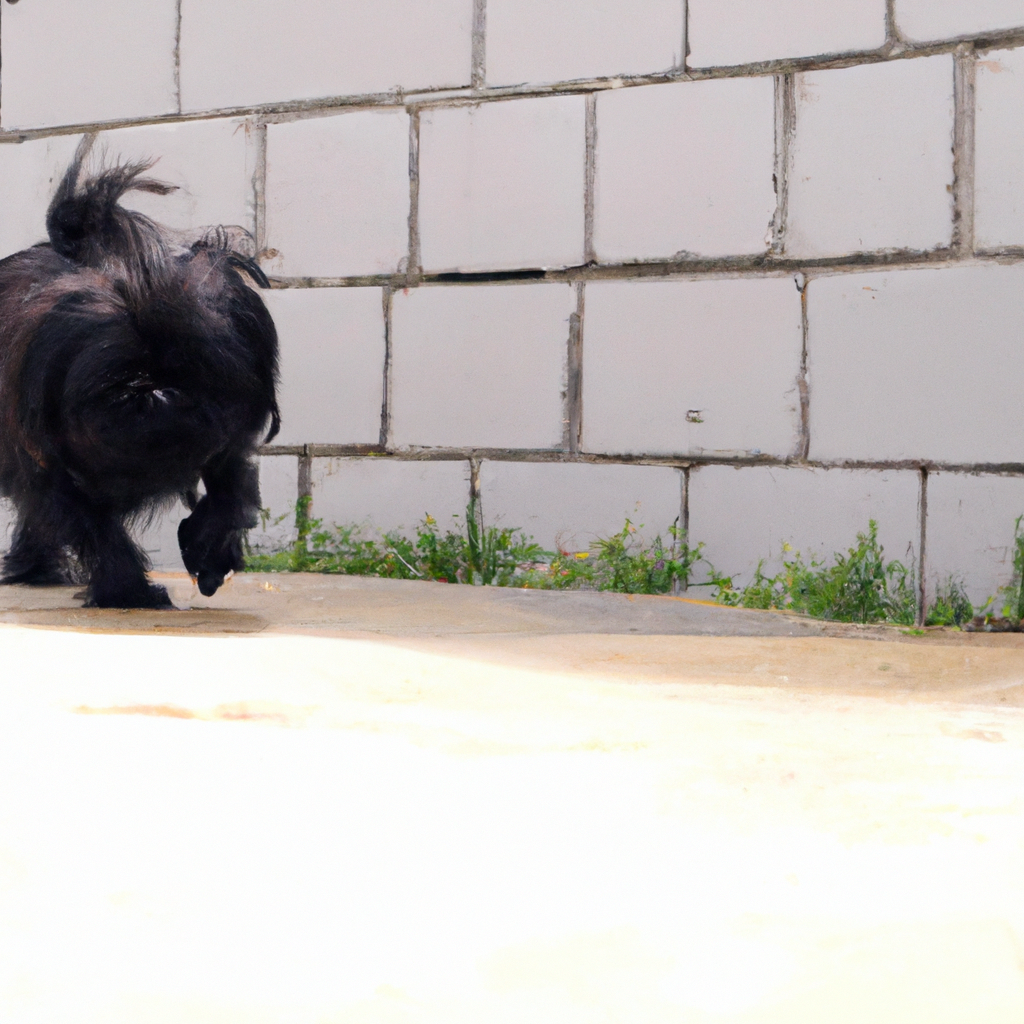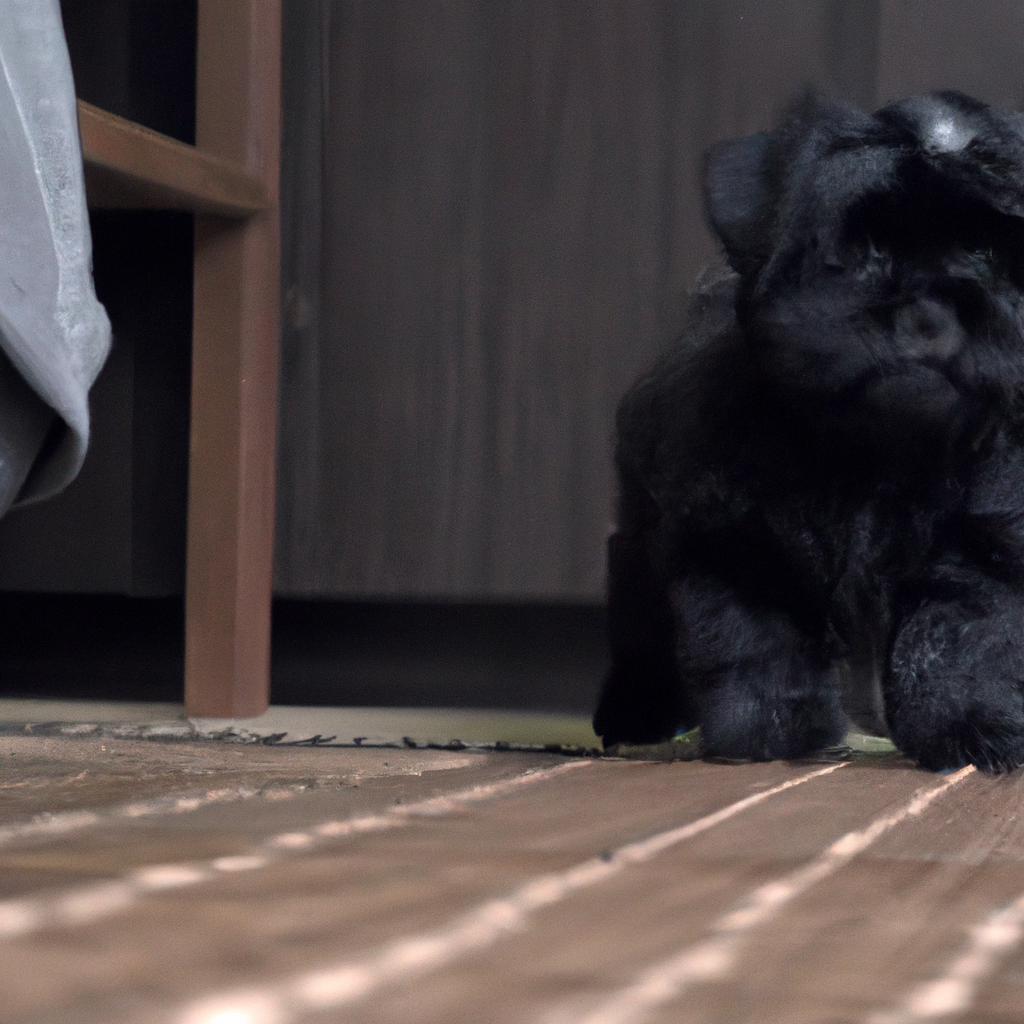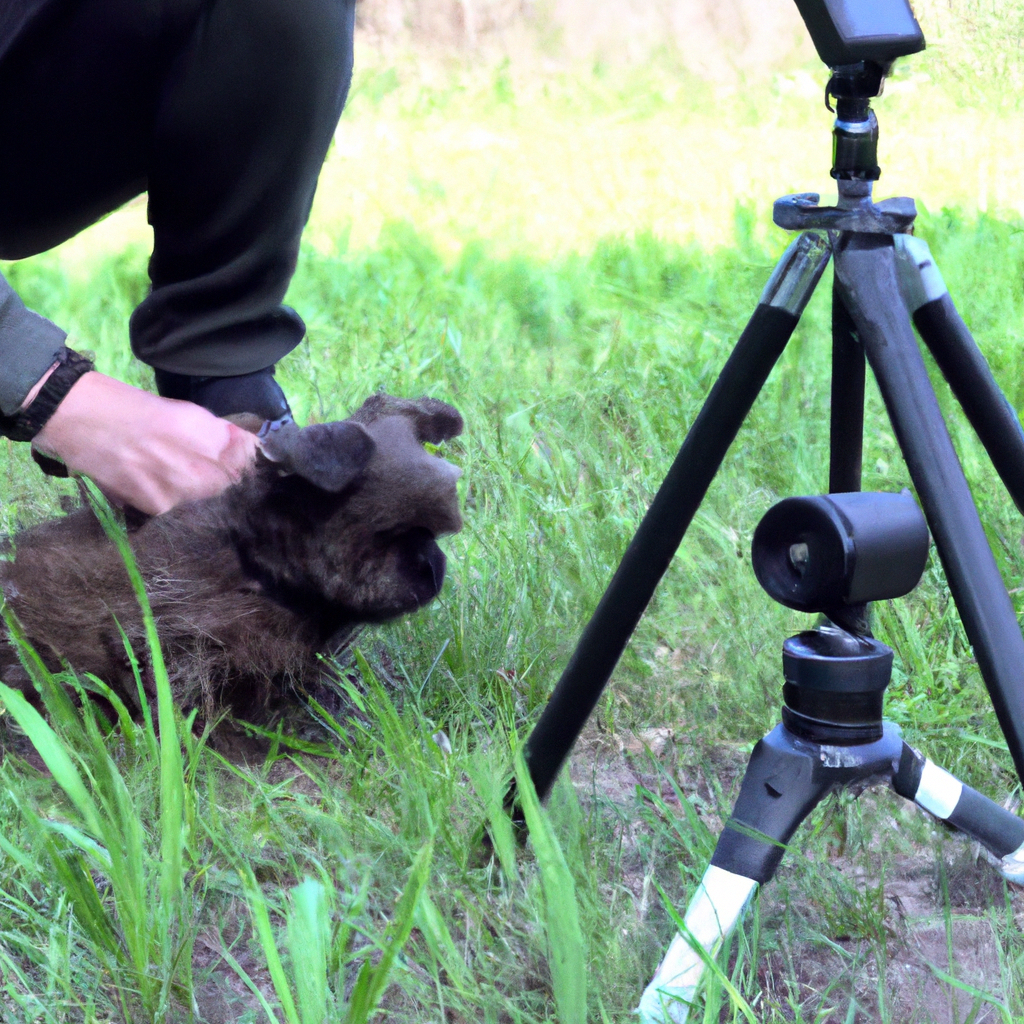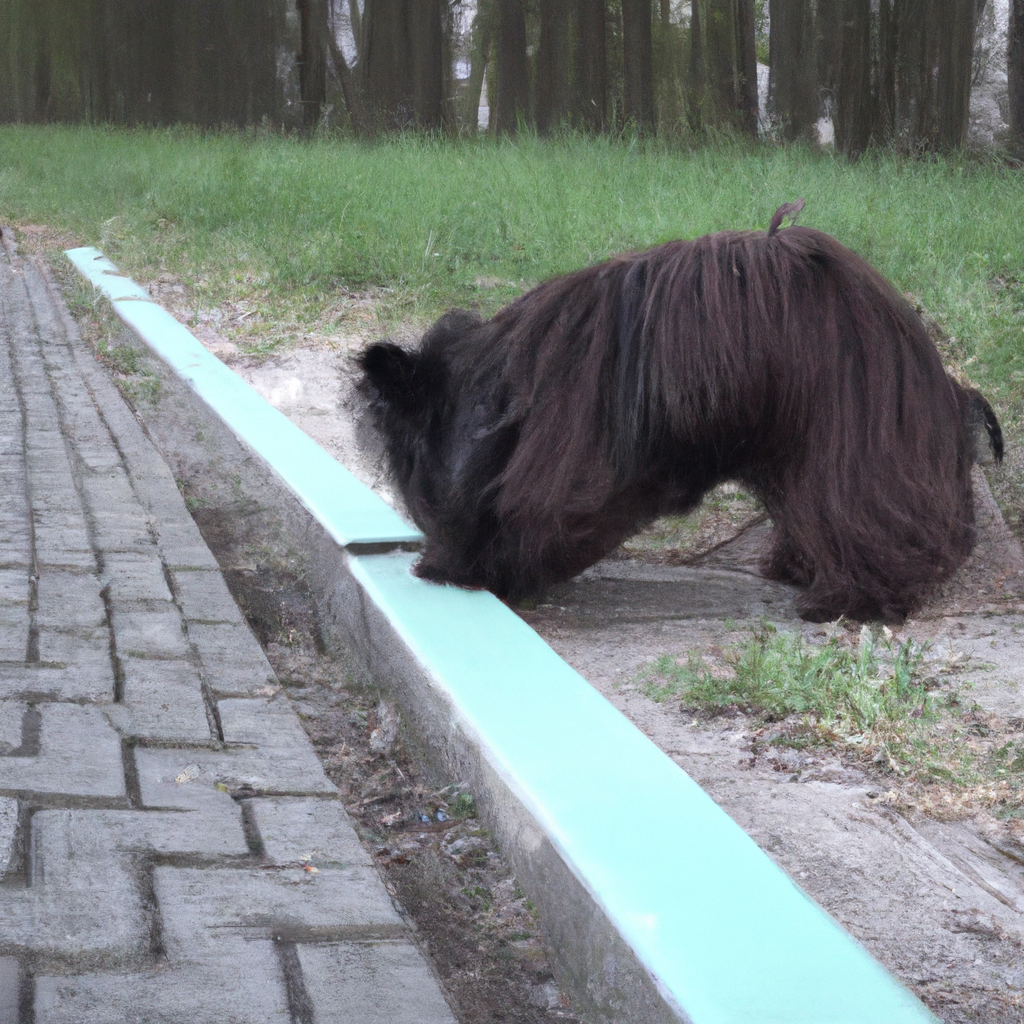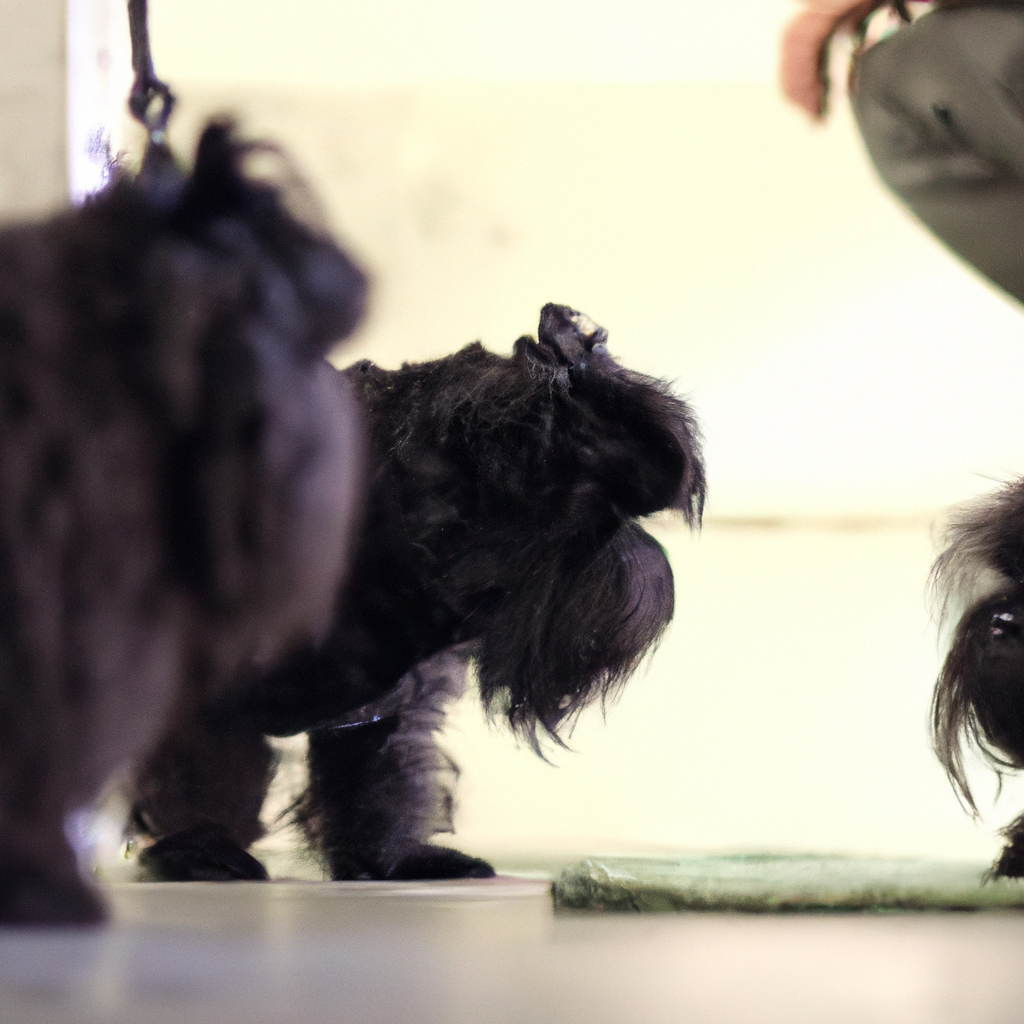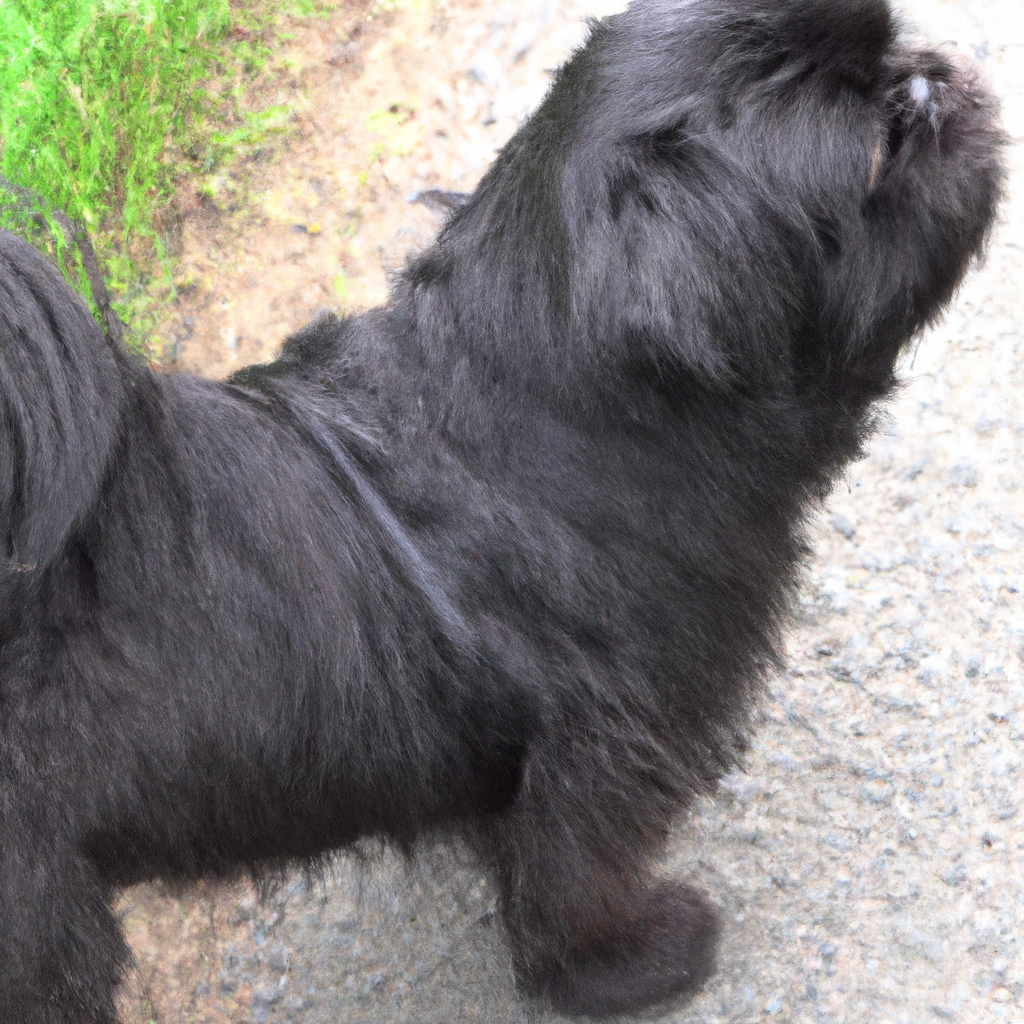Affenpinscher training tips provide guidance on how to effectively train this small, energetic breed. Known for their intelligence and stubbornness, Affenpinschers require a unique approach to training. The tips cover various aspects such as obedience training, socialization, housebreaking, and dealing with their stubborn nature. They also emphasize the importance of positive reinforcement techniques, consistency, and patience. These tips are designed to help owners understand their Affenpinscher’s behavior and train them in a way that is both effective and enjoyable for the dog.
Understanding the Affenpinscher: Key Training Techniques
The Affenpinscher, often referred to as the “Monkey Dog” due to its primate-like appearance and playful nature, is a small but mighty breed. Known for their boundless energy and sharp intelligence, these dogs can be a joy to train if you understand their unique characteristics and needs.
Firstly, it’s important to remember that Affenpinschers are naturally curious and adventurous. They love to explore their surroundings and are always on the lookout for something new and exciting. This can be a great advantage when it comes to training, as you can use their curiosity to your benefit. Introducing new toys, treats, or environments can keep them engaged and eager to learn. However, their adventurous spirit can also lead to distractions, so it’s crucial to keep training sessions short and sweet to maintain their focus.
Secondly, Affenpinschers are known for their stubborn streak. While this trait can sometimes make training a challenge, it’s important not to view it as a negative. Instead, see it as a sign of their independent thinking and problem-solving skills. To work with their stubbornness, rather than against it, use positive reinforcement techniques. Rewarding good behavior with treats, praise, or playtime can motivate them to follow commands and learn new skills. Remember, patience is key. It may take a little longer for your Affenpinscher to master a command, but the satisfaction of seeing them succeed is well worth the wait.
Thirdly, socialization is a crucial part of any dog’s training, and Affenpinschers are no exception. These dogs are naturally sociable and love to be around people and other animals. Early socialization can help them become well-rounded dogs, comfortable in a variety of situations. Introduce them to different people, animals, and environments from a young age. This exposure can help them learn to react appropriately in different situations and reduce the likelihood of fear or aggression later in life.
Lastly, it’s important to remember that every Affenpinscher is an individual. While these general tips can be helpful, what works for one dog may not work for another. Pay attention to your dog’s reactions during training. If a certain technique isn’t working, don’t be afraid to try something new. The key is to find what motivates your dog and use that to guide your training.
Training an Affenpinscher can be a rewarding experience. These dogs are intelligent, playful, and full of personality. With patience, consistency, and a good understanding of their unique traits, you can help your Affenpinscher become a well-behaved and happy member of your family. Remember, the goal of training isn’t just to have a dog that follows commands, but to build a strong, trusting relationship between you and your furry friend. So, embrace the process, celebrate the small victories, and most importantly, have fun along the way. After all, training is just as much about the journey as it is about the destination.
Effective House Training Methods for Your Affenpinscher
Training your Affenpinscher can be a fun and rewarding experience, but it can also be a challenge. These small, energetic dogs are known for their intelligence and stubbornness, which can make house training a bit tricky. However, with patience, consistency, and the right techniques, you can effectively house train your Affenpinscher and enjoy a harmonious relationship with your furry friend.
Firstly, it’s important to understand that Affenpinschers, like all dogs, respond best to positive reinforcement. This means rewarding good behavior rather than punishing bad behavior. When your Affenpinscher does something right, like going to the bathroom outside, make sure to give them plenty of praise and a treat. This will help them associate the behavior with positive outcomes, making them more likely to repeat it in the future.
On the other hand, if your Affenpinscher has an accident inside the house, it’s crucial not to scold or punish them. This can create fear and confusion, which can actually make house training more difficult. Instead, calmly clean up the mess and continue with your training routine. Remember, patience is key when it comes to house training.
Another effective method for house training your Affenpinscher is crate training. This involves providing your dog with a crate that serves as their own personal space. Dogs naturally avoid soiling their sleeping areas, so crate training can be a powerful tool for house training. However, it’s important to ensure that the crate is the right size for your Affenpinscher. It should be large enough for them to stand, turn around, and lie down comfortably, but not so large that they can use one corner as a bathroom.
Consistency is also crucial when it comes to house training your Affenpinscher. Try to establish a regular schedule for feeding and bathroom breaks. This can help your dog understand when it’s time to go outside. It’s also a good idea to take your Affenpinscher to the same spot each time, as the scent can encourage them to go to the bathroom.
In addition to these methods, socialization can also play a role in house training. Affenpinschers are social animals, and they learn a lot from interacting with other dogs. If possible, try to arrange playdates with other house-trained dogs. This can help your Affenpinscher pick up good habits.
Lastly, remember that every dog is unique, and what works for one Affenpinscher might not work for another. It’s important to be patient and flexible, and to try different methods until you find what works best for your dog. And remember, house training is a process, and it can take time. But with patience, consistency, and the right approach, you can successfully house train your Affenpinscher.
In conclusion, house training your Affenpinscher can be a rewarding experience that strengthens the bond between you and your pet. By using positive reinforcement, crate training, consistency, and socialization, you can help your Affenpinscher understand where and when to go to the bathroom. And remember, patience is key. With time and effort, your Affenpinscher will become a well-behaved member of your household.
Affenpinscher Training: Overcoming Stubbornness with Patience
Training an Affenpinscher, affectionately known as the “Monkey Dog” due to its simian-like appearance, can be a delightful yet challenging experience. These small, sturdy dogs are known for their playful and adventurous spirit, but they also have a reputation for being somewhat stubborn. However, with patience, consistency, and a few handy tips, you can successfully train your Affenpinscher and build a strong bond with your furry friend.
Firstly, it’s important to understand the Affenpinscher’s temperament. These dogs are naturally curious and energetic, but they also have a strong independent streak. This means they may not always be eager to follow commands, especially if they’re busy exploring or playing. However, don’t let this discourage you. Instead, see it as an opportunity to engage your Affenpinscher’s interest and make training a fun and rewarding experience.
One of the most effective ways to train an Affenpinscher is through positive reinforcement. This involves rewarding your dog for good behavior, rather than punishing them for bad behavior. Rewards can be anything your dog finds enjoyable, such as treats, toys, or praise. The key is to make sure the reward is given immediately after the desired behavior, so your dog associates the behavior with the reward.
For example, if you’re teaching your Affenpinscher to sit, give them a treat as soon as they sit down. This will help them understand that sitting on command leads to a tasty reward. Over time, this positive association will encourage your dog to repeat the behavior, even when a reward isn’t immediately available.
Another important aspect of training an Affenpinscher is consistency. Dogs thrive on routine and predictability, so it’s crucial to be consistent with your commands and expectations. If you allow your dog to jump on the couch one day, but scold them for it the next, they’ll become confused and unsure of what’s expected of them. To avoid this, make sure everyone in your household is on the same page about what behaviors are acceptable and what aren’t.
Patience is also key when training an Affenpinscher. These dogs are intelligent and quick to learn, but their independent nature can sometimes make them seem stubborn or uncooperative. If your dog isn’t picking up a command as quickly as you’d like, don’t get frustrated. Instead, take a break and try again later. Remember, training should be a positive experience for both you and your dog.
Lastly, socialization is an important part of any dog’s training, and Affenpinschers are no exception. Exposing your dog to a variety of people, animals, and environments will help them become more confident and well-adjusted. This can also help reduce any potential behavioral problems, such as aggression or fearfulness.
In conclusion, training an Affenpinscher requires patience, consistency, and a positive approach. While these dogs may have a stubborn streak, they’re also intelligent, playful, and eager to please. With the right training techniques, you can help your Affenpinscher become a well-behaved and happy member of your family.
Socializing Your Affenpinscher: Essential Training Tips
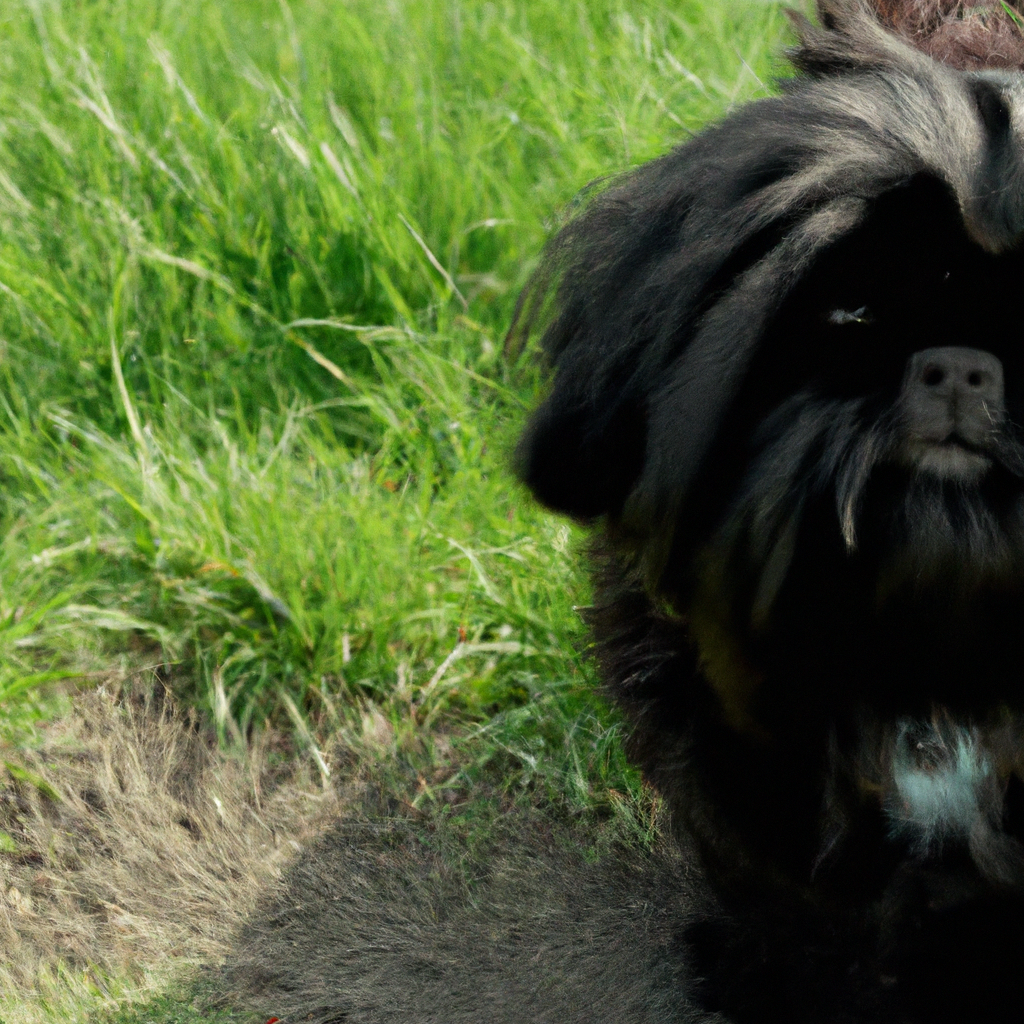
Training your Affenpinscher can be a delightful experience, especially when it comes to socializing them. These small, energetic dogs are known for their playful and adventurous nature, making them a joy to be around. However, like any other breed, Affenpinschers require proper socialization to ensure they grow into well-rounded, confident dogs. Here are some essential training tips to help you along the way.
Firstly, it’s important to understand that socialization is not just about introducing your Affenpinscher to other dogs. It’s about exposing them to a variety of experiences, environments, and individuals. This includes different types of people, sounds, smells, and even textures. The goal is to help your Affenpinscher become comfortable with the world around them, reducing the likelihood of fear or aggression in unfamiliar situations.
Start socializing your Affenpinscher as early as possible. Puppies are most receptive to new experiences between three and twelve weeks of age. During this period, expose them to as many new experiences as you can. This could include taking them on walks in different environments, introducing them to various household noises, or letting them meet a diverse range of people.
Remember, the key to successful socialization is positive reinforcement. Whenever your Affenpinscher reacts calmly and confidently to a new experience, reward them with treats, praise, or play. This will help them associate new experiences with positive outcomes, making them more likely to react positively in the future.
However, it’s equally important to ensure that these experiences are not overwhelming for your Affenpinscher. Introduce new experiences gradually and always monitor their reactions. If they seem scared or anxious, it’s best to remove them from the situation and try again another time. Forcing your Affenpinscher into a situation they’re uncomfortable with can do more harm than good.
In addition to exposing your Affenpinscher to a variety of experiences, it’s also crucial to teach them how to interact appropriately with other dogs. Regular playdates with other dogs can be a great way to do this. Just make sure the other dogs are friendly and well-socialized themselves. Dog parks can also be a good option, but be cautious as they can sometimes be overwhelming for a small dog like an Affenpinscher.
Training classes can also be a great way to socialize your Affenpinscher. Not only will they learn basic obedience commands, but they’ll also get the chance to interact with other dogs and people in a controlled environment. Plus, you’ll have the guidance of a professional trainer to help you navigate any challenges that arise.
Lastly, remember that socialization is an ongoing process. Even after your Affenpinscher has grown out of their puppy stage, it’s important to continue exposing them to new experiences regularly. This will help them maintain their confidence and adaptability as they age.
In conclusion, socializing your Affenpinscher is a crucial part of their training. By exposing them to a variety of experiences and teaching them how to interact appropriately with others, you can help them grow into a confident, well-rounded dog. Just remember to start early, use positive reinforcement, and ensure the experiences are not overwhelming. With patience and consistency, you’ll soon have a sociable, happy Affenpinscher by your side.
Affenpinscher Training: Harnessing Their High Energy Levels
Affenpinschers, affectionately known as “Monkey Dogs,” are a small breed known for their high energy levels and playful nature. Training an Affenpinscher can be a fun and rewarding experience, but it does require a certain level of patience and understanding. These dogs are intelligent, curious, and full of life, which can sometimes translate into a bit of stubbornness. However, with the right approach, you can harness their energy and turn it into a positive training experience.
Firstly, it’s important to understand that Affenpinschers are a very active breed. They love to play, explore, and get into mischief. This means that they require a lot of physical and mental stimulation to keep them happy and healthy. Incorporating plenty of playtime into your training sessions can be a great way to keep your Affenpinscher engaged and eager to learn. Try using toys, treats, or even a game of fetch as a reward for good behavior. This not only helps to burn off some of their excess energy but also makes training a fun and enjoyable experience for your dog.
Secondly, Affenpinschers respond best to positive reinforcement. This means rewarding good behavior rather than punishing bad behavior. When your Affenpinscher does something right, be sure to give them plenty of praise and a treat or two. This will help them associate good behavior with positive outcomes, making them more likely to repeat that behavior in the future. On the other hand, if your Affenpinscher does something wrong, it’s best to redirect their attention to something more positive rather than scolding them. This can help prevent them from developing negative associations with training.
Another key aspect of training an Affenpinscher is consistency. These dogs are smart and can quickly pick up on inconsistencies in your training methods. If you’re inconsistent with your commands or rewards, your Affenpinscher may become confused and less likely to respond to your training efforts. Therefore, it’s important to be consistent with your commands, rewards, and training schedule. This will help your Affenpinscher understand what is expected of them and make the training process smoother and more effective.
Patience is also crucial when training an Affenpinscher. These dogs are known for their stubborn streak, which can sometimes make training a bit challenging. However, it’s important to remember that every dog learns at their own pace. If your Affenpinscher is struggling with a particular command or behavior, don’t get frustrated. Instead, take a step back, reassess your approach, and try again. With time, patience, and consistency, your Affenpinscher will eventually get the hang of it.
Lastly, socialization is an important part of any dog’s training, and Affenpinschers are no exception. These dogs are naturally sociable and love to be around people and other animals. Therefore, exposing your Affenpinscher to a variety of different people, animals, and environments can help them become more well-rounded and adaptable.
In conclusion, training an Affenpinscher can be a bit of a challenge due to their high energy levels and stubborn nature. However, with the right approach, plenty of patience, and a good understanding of their needs, you can turn training into a fun and rewarding experience for both you and your Affenpinscher. Remember, the key is to harness their energy and use it to your advantage in training.
The Importance of Consistency in Affenpinscher Training
Training an Affenpinscher, like any other dog breed, requires patience, understanding, and most importantly, consistency. Known for their spunky and adventurous nature, Affenpinschers are small dogs with big personalities. They are intelligent, curious, and full of energy, making them both a joy and a challenge to train.
The key to successful Affenpinscher training lies in the power of consistency. Consistency, in this context, refers to maintaining a steady, unchanging approach to training. This means using the same commands, rewards, and consequences each time a specific behavior is being addressed.
Imagine you’re trying to teach your Affenpinscher not to jump on guests. If you scold them one time, ignore them the next, and then laugh at their antics the third time, you’re sending mixed signals. Your dog won’t understand what you want from them. However, if you consistently discourage the behavior each time it happens, your Affenpinscher will eventually understand that jumping on guests is not acceptable.
Consistency also applies to everyone in the household. If one person allows the dog on the couch while another scolds them for it, it creates confusion. Make sure everyone is on the same page about the rules and how to enforce them.
Another important aspect of consistency is timing. Affenpinschers, like most dogs, have a short attention span. If you reward or correct their behavior too long after the act, they won’t make the connection between their action and your response. The key is to catch them in the act. For instance, if you’re teaching them to sit, reward them immediately after their bottom hits the ground. This way, they’ll associate sitting with the reward and will be more likely to repeat the behavior.
Consistency in training also extends to the type of rewards you use. Affenpinschers respond well to positive reinforcement, which involves rewarding good behavior rather than punishing bad behavior. This could be in the form of treats, praise, or playtime. Whatever you choose, make sure it’s something your dog values and keep it consistent. If you switch between different types of rewards, your dog may not understand what they’re being rewarded for.
Training an Affenpinscher can be a test of patience. They’re known for their stubborn streak and can be quite independent. However, don’t let this discourage you. Consistency is key. If you stay consistent with your commands, your timing, and your rewards, your Affenpinscher will eventually catch on.
Remember, training is not just about teaching your dog to obey commands. It’s also about building a strong, trusting relationship between you and your pet. Consistency in training helps establish this bond. It shows your Affenpinscher that you’re reliable and trustworthy, which in turn makes them more likely to listen to you.
In conclusion, training an Affenpinscher, or any dog for that matter, requires a consistent approach. It might take time and patience, but the end result—a well-behaved pet and a strong bond between you two—is well worth the effort. So, stay consistent, be patient, and enjoy the journey of training your Affenpinscher.
Training Your Affenpinscher: Dealing with Separation Anxiety
Training your Affenpinscher can be a delightful experience, especially when you understand their unique personality traits and needs. One common issue that many Affenpinscher owners face is dealing with separation anxiety. This breed is known for its strong attachment to its human family, which can sometimes lead to distress when left alone. However, with the right approach, you can help your Affenpinscher overcome separation anxiety and enjoy a more relaxed, confident demeanor.
Affenpinschers are small, but they have a big heart and a lot of love to give. They thrive on companionship and can become quite anxious when they’re left alone for extended periods. This anxiety can manifest in various ways, such as excessive barking, destructive behavior, or even attempts to escape. It’s essential to recognize these signs early and take steps to address them.
The first step in dealing with separation anxiety is to create a safe, comfortable space for your Affenpinscher. This could be a crate, a specific room, or a designated area in your home. Make this space inviting with their favorite toys, a comfortable bed, and perhaps an item of your clothing that carries your scent. This can provide a sense of security and familiarity when you’re not around.
Next, it’s crucial to establish a routine. Affenpinschers, like most dogs, thrive on predictability. Try to maintain a consistent schedule for feeding, walks, playtime, and rest. This routine can help your dog understand what to expect each day, reducing their anxiety.
Gradual desensitization is another effective strategy for dealing with separation anxiety. Start by leaving your Affenpinscher alone for short periods, gradually increasing the duration over time. This process allows your dog to get used to your absence slowly and understand that you will always return. Remember to reward your dog for calm behavior when you leave and return, reinforcing the idea that being alone is not a cause for panic.
Exercise is also a vital part of managing separation anxiety. A tired dog is a happy dog, and a good workout can help burn off excess energy and reduce anxiety. Regular walks, play sessions, and mental stimulation can help keep your Affenpinscher content and relaxed.
While these strategies can be effective, it’s important to remember that every dog is unique, and what works for one may not work for another. Patience and consistency are key. It may take time for your Affenpinscher to adjust and learn to cope with being alone.
In some cases, separation anxiety can be severe and may require professional help. If your Affenpinscher’s anxiety is causing significant distress or destructive behavior, it may be worth consulting with a professional dog trainer or a veterinary behaviorist. These experts can provide personalized advice and strategies to help manage your dog’s anxiety.
Training your Affenpinscher to deal with separation anxiety can be a challenging but rewarding process. With patience, consistency, and a little bit of understanding, you can help your furry friend feel more secure and confident when left alone. Remember, the goal is not to eliminate your dog’s natural desire for companionship but to help them understand that being alone is not something to fear. With the right approach, you can turn this training challenge into an opportunity to strengthen your bond with your Affenpinscher and enhance their overall well-being.
Affenpinscher Training: Tips for Preventing Aggressive Behavior
Affenpinschers, often referred to as “Monkey Terriers” due to their distinct primate-like appearance, are a small but spirited breed. Known for their playful and sometimes mischievous nature, these dogs can be a joy to have around. However, like any breed, Affenpinschers can exhibit aggressive behavior if not properly trained. Here are some tips to help prevent such behavior and ensure your Affenpinscher is a well-behaved and happy member of your family.
Firstly, it’s important to understand that Affenpinschers are naturally protective and territorial. This trait, while beneficial in some circumstances, can lead to aggressive behavior if not managed correctly. Therefore, it’s crucial to establish boundaries early on. This means teaching your Affenpinscher what areas of the house are off-limits and ensuring they understand that they are not the ‘alpha’ in the household. This can be achieved through consistent training and positive reinforcement.
Socialization is another key aspect of preventing aggressive behavior in Affenpinschers. These dogs are known to be somewhat wary of strangers, which can lead to aggression if not addressed. To combat this, expose your Affenpinscher to a variety of people, environments, and other animals from a young age. This will help them become more comfortable in different situations and reduce the likelihood of aggressive reactions.
Training an Affenpinscher requires patience and consistency. These dogs are intelligent and quick learners, but they can also be stubborn. Therefore, it’s important to use positive reinforcement methods, such as treats and praise, rather than punishment. This will help your Affenpinscher associate good behavior with positive outcomes, making them more likely to repeat these behaviors in the future.
It’s also worth noting that Affenpinschers, like many small breeds, can suffer from ‘small dog syndrome’. This is a behavioral issue where small dogs believe they are the pack leader and can lead to aggressive behavior. To prevent this, ensure your Affenpinscher knows their place in the pack hierarchy. This can be achieved by setting rules and boundaries and sticking to them consistently.
Exercise is another crucial factor in preventing aggressive behavior in Affenpinschers. These dogs are energetic and require regular physical and mental stimulation to prevent boredom and frustration, which can lead to aggression. Regular walks, playtime, and puzzle toys can all help keep your Affenpinscher entertained and well-exercised.
Lastly, it’s important to remember that every dog is unique and what works for one Affenpinscher may not work for another. Therefore, it’s crucial to be patient and flexible in your training approach. If you’re struggling with training or if your Affenpinscher is showing signs of aggression, don’t hesitate to seek professional help. A professional dog trainer or behaviorist can provide valuable insight and guidance to help you and your Affenpinscher live harmoniously together.
In conclusion, training an Affenpinscher to prevent aggressive behavior involves setting clear boundaries, socializing them from a young age, using positive reinforcement methods, preventing ‘small dog syndrome’, providing plenty of exercise, and seeking professional help if needed. With patience, consistency, and understanding, you can help your Affenpinscher become a well-behaved and happy member of your family.In conclusion, training an Affenpinscher requires patience, consistency, and positive reinforcement. These dogs respond well to reward-based training and early socialization. They can be stubborn at times, so it’s important to establish a firm and consistent leadership. Training should be fun and varied to keep the Affenpinscher engaged. Despite their small size, they need regular exercise to prevent behavioral issues. Crate training is beneficial for house training but should not be used for long-term confinement. Lastly, professional obedience classes can be beneficial for both the dog and the owner.
